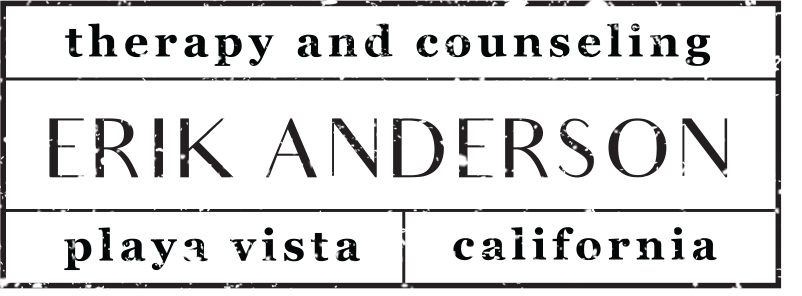How Therapy Helps with Impulse Control Disorders
Mental health and the awareness of mental illness is on the rise. We are more understanding of depression and anxiety, and we know that addiction is a disease. According to the National Alliance of Mental Illness, one in five adults in the United States experience symptoms of mental illness every year. Yet, we have a long way to go in accepting and empathizing with those who suffer from mental illnesses like depression and anxiety, and with less understood mental illnesses like schizophrenia, bipolar disorder, and impulse control disorders.
A large part of acceptance is understanding and normalizing that mental illness is not a character defect or a shameful diagnosis, but rather a medical condition that needs treatment the same way cancer and heart disease requires medical attention. As we break the stigma around therapy and all reasons for seeking it, we gain the ability to actually help those who are suffering.
In this post we’ll explore impulse control disorders specifically, and how we can better offer treatment for impulse control disorders, for the millions of members of our population currently experiencing symptoms and adverse effects.
What Are Impulse Control Disorders (ICDs)?
To start, at the most basic level, impulse control disorders, or ICDs are mental illnesses that manifest as an inability to control one’s impulses. People suffering from ICDs have a hard time resisting ongoing urges to engage in excessive behaviors that often become harmful to themselves and to others. ICD urges often become violent and destructive, and are therefore dangerous to anyone around at the time that the urge cannot be controlled.
Psychology Today reports that 1-3% of the US population experience the symptoms of ICDs. This makes the conditions rare, but the harmful nature of the behaviors ends up affecting much more than just the people who are diagnosed, or could be diagnosed, with impulse control disorders. A licensed therapist is required to make a diagnosis for any mental illness.
Impulse Control Disorders Versus Obsessive Compulsive Disorder (OCD)
Often Obsessive Compulsive Disorder, OCD, gets lumped in with ICDs. While there are similarities, and the DSM-4 did categorize certain disorders as ICDs, the distinctions have become more clear in the DSM-5. Trichotillomania, for example, the inability to stop the urge to rip out one’s own hair, used to be categorized as an ICD, but is now diagnosed as an OCD condition. There are a few other mental illnesses like this, so it’s very important for practitioners to accurately assess a client’s condition when assessing for and diagnosing impulse control disorders.
When an individual is trying to manage the symptoms of an ICD or OCD, they deserve a therapist with a compassionate, humanistic approach. Treatment for impulse control disorders and for Obsessive Compulsive Disorder needs to be catered to the disorder and the individual living with it. An OCD therapist in Los Angeles, or via telehealth in the state of California, is available when you’re ready for assessment and therapy.
Treatment for Impulse Control Disorders
Individual Psychodynamic Therapy
Traditional talk therapy is always recommended for any mental illness, whether diagnosed or not. You want to get an assessment of symptoms from a professional therapist who specializes in impulse control disorders, and then engage in ongoing psychodynamic therapy to best treat all of the symptoms you experience. Therapy is extremely helpful in treating ICDs.
Cognitive Behavioral Therapy (CBT)
Cognitive Behavioral Therapy, or CBT, is the most commonly used treatment modality for ICDs. During individual therapy, your therapist will teach you about CBT, and introduce you to tools that you can then implement into your life. CBT works with how your thoughts and behaviors are connected, and how your thoughts lead to your behaviors. With an increased awareness of your thoughts, you can use tools to step in to stop the behaviors that seem to come automatically before you engage in them and cause potential harm to yourself or to others.
CBT as a part of treatment for impulse control disorders is effective and even life-changing when practiced regularly. When you work with a great therapist, change is possible.
Medication
Impulse control disorders are best treated with a combination of therapy with a CBT focus and medication. Pharmacological treatment is not recommended on its own. A more stabilized mood and mind allow you to work with the tools from CBT. If you or a loved one are looking for support with medication to help with similar mental health concerns, please consult with your primary care provider or psychiatrist for recommendations on treatment.
Beginning Your Journey
If you believe that you or a loved one is suffering from the symptoms of any of the listed impulse control disorders, help is available and can begin. I am a Licensed Marriage and Family Therapist who can assess your symptoms and start the process of determining what combination of treatment for impulse control disorders is best.
When you are ready to start, reach out to me, Erik Anderson LMFT, to schedule an initial consultation. We can meet in person at my office in Playa Vista, which serves Mar Vista, Culver City, and surrounding areas of Los Angeles, or we can do teletherapy if you are in California.


